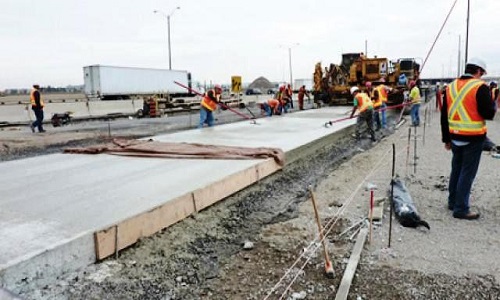

Dangote Group has set the pace with the use of concrete in road construction.
This is evident with the takeoff of the construction of a 42.5km Obajana-Kabba Road in Kogi State.
Work on the project will commence today which will make it the second longest concrete road construction in the country.
The Federal Ministry of Power, Works and Housing has signed the road project on November 22, 2016 to the company which will take a duration of 24-month for completion, meaning that by December 2018, the road will be fully ready for use.
It would be recalled that as part of its Corporate Social Responsibility (CRS), the Dangote Group had commissioned the 26 km Itori-Ibese Concrete Road in June this year.
The Obajana-Kabba concrete road to be built by AG Dangote Construction Company will cost the Dangote Group N11.5billion but the job was awarded to the Group on tax concession basis at N5.24 billion.
The difference of N6.2 billion is part of the Corporate Social Responsibility (CSR) of the Dangote Group.
At the moment, Nigeria produces more cement than any other country in Africa with over 40 million metric tonnes of cement per annum.
That represents a massive potential to change the nation’s infrastructure story, taking advantage of the abundant availability of the essential building material.
Most roads and other infrastructure in Nigeria and the whole of Africa are in sorry state.
As the world currently grapples with a sluggish economy, the flow of investment to and within emerging economies is without doubt more intricate and extremely competitive.
So, Nigeria must look inwards to keep her economy growing.
If the use of cement made in Nigerian factories for road construction is adopted, apart from the critical infrastructure being built, the nation’s industrial capacity utilisation will increase, more taxes will be paid, lots of jobs will be created and the list of economic benefits goes on, giving the country the opportunity of winning in all ways.
Taking lesson from developed country, some experts are of the opinion that a good place to begin the paradigm shifts with respect to road management in the country is the diversification of the material used for road construction and maintenance.
Virtually all the roads in Nigeria were made using asphalt and bitumen. Also, all the road maintenance carried out in the country is done using this single material and method, which has failed to give the quality of roads that make nations proud and lure investors.
Construction experts are now asking why cement, which Nigeria now produces locally in very large quantities, has not been introduced in road making to save the country from the five-decade long embarrassment.
The fact that Nigeria has failed to use cement for road construction is most embarrassing because other countries such as India, the United States among others have successfully used cement to make roads and maintain them for up to a century or more.
Worried about the huge sum of money used in road repairs, the president, Dangote Group, Aliko Dangote, said plans were in place to revolutionise Nigeria’s road infrastructure building with concrete.
He stressed that resources used in road repairs and maintenance would be channeled towards the pressing needs of the nation.
“We are going to be building concrete roads in the country so that anytime we build a road, we do not have to go back to repair after the third raining season, but move on and use the resources to address other pressing needs of Nigeria,” Dangote said.
By Buhari Sallau


